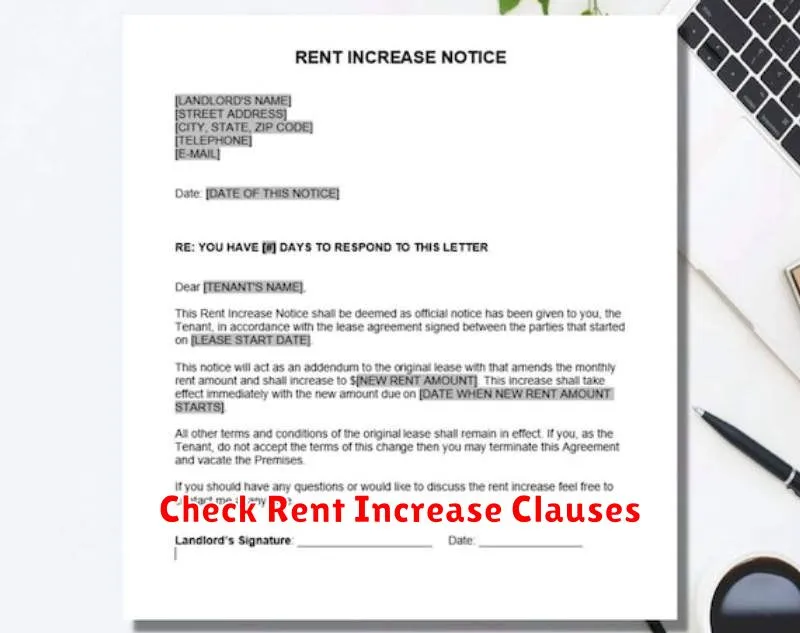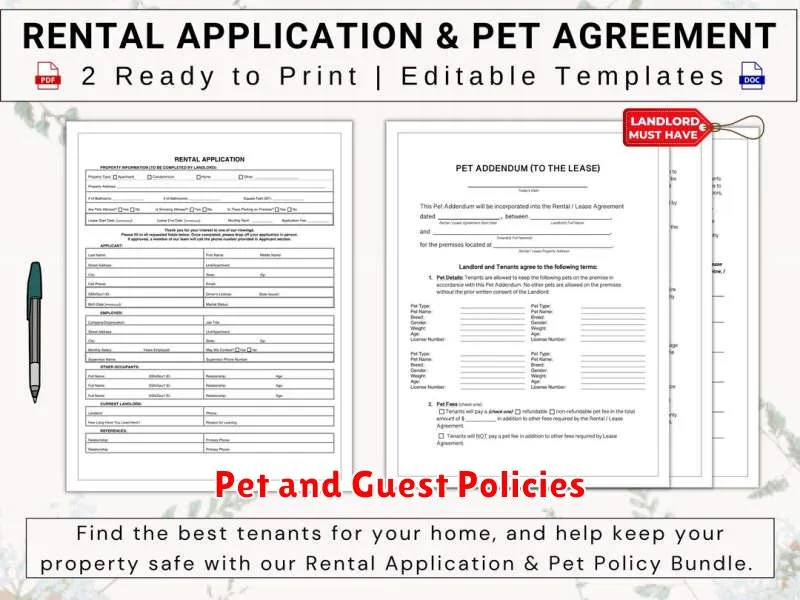Signing a lease is a significant commitment, binding you to a specific property for a designated period. Before you put pen to paper, it’s crucial to carefully consider several factors that can significantly impact your living situation and finances. Understanding your rights and responsibilities as a tenant is essential to avoid potential issues down the road. This article will explore the key things to consider before signing a lease, providing you with the knowledge necessary to make an informed decision. From scrutinizing the lease terms to evaluating the property’s condition and surrounding neighborhood, we will guide you through the essential steps to ensure a positive and stress-free renting experience. Considering these elements will help you make a sound decision and enter into a lease agreement with confidence.
Whether you’re a first-time renter or a seasoned tenant, taking the time to thoroughly review the lease agreement is paramount. This document outlines the terms and conditions of your tenancy, including the rent amount, lease duration, and responsibilities of both the landlord and tenant. Understanding the intricacies of the lease agreement is vital to protect your interests and avoid future disputes. By carefully examining each clause and seeking clarification when needed, you can ensure a smooth and harmonious tenancy. This article will delve into the critical aspects of a lease, providing you with the insights needed to make an informed choice about your next home. From pet policies and maintenance responsibilities to parking arrangements and lease renewal options, we’ll cover the essential elements to look for before signing on the dotted line.
Read the Fine Print
Before signing any lease agreement, it’s crucial to read every single word, including the fine print. Overlooking seemingly minor details can lead to unexpected costs and disputes down the road.
Pay close attention to clauses regarding:
- Lease Duration: Understand the length of the lease and any penalties for breaking it early.
- Rent Increases: Know how and when your rent can be increased.
- Maintenance Responsibilities: Clarify who is responsible for repairs and maintenance within the property.
- Pet Policies: If you have or plan to have pets, ensure the lease outlines acceptable pet breeds, sizes, and any associated fees.
- Utilities: Determine which utilities you are responsible for paying.
If you’re unsure about any aspect of the lease, seek clarification from the landlord or consult with a legal professional. Don’t hesitate to ask questions. A clear understanding of the lease terms protects both you and the landlord.
Check Rent Increase Clauses

Before signing a lease, carefully review any clauses related to rent increases. Landlords often include stipulations detailing how and when they can raise the rent.
Pay close attention to the frequency of potential increases. Some leases permit annual increases, while others might allow for adjustments more or less frequently. The lease should also specify the maximum percentage the rent can be increased at any given time. Knowing this information upfront helps you budget accordingly and avoid unexpected financial strain.
Also, be aware of any conditions tied to rent increases. For example, the lease may state that increases are tied to specific indices or market rates. Understanding these conditions empowers you to anticipate potential rent hikes and make informed decisions about your housing costs.
Pet and Guest Policies

Before signing a lease, carefully review the pet policies. Some properties may not allow pets at all, while others may have restrictions on breed, size, or number. Pet fees, including deposits and monthly charges, should be clearly outlined. Understand what happens if there are damages caused by your pet.
Guest policies are also important to consider. The lease should specify any restrictions on guests, including the length of their stay. Some leases may require pre-approval for overnight guests or limit the total number of guest days allowed. Be aware of these rules to avoid potential issues with your landlord.
Early Termination Terms
Carefully review the early termination clause. This section outlines the repercussions of ending the lease before its designated expiration date. Understand the financial penalties involved, which might include paying a certain number of months’ rent or forfeiting your security deposit.
Some leases offer options for mitigating these penalties. For example, you might be allowed to find a suitable replacement tenant to take over your lease. The lease agreement should detail the specific procedures for this process.
Pay close attention to the specific circumstances under which early termination might be permissible without excessive penalties. Some leases might include clauses addressing situations like job relocation or military deployment.
Included Utilities and Maintenance
Before signing a lease, it’s crucial to understand which utilities are included in your monthly rent and which you’ll be responsible for paying separately. Common utilities include water, electricity, gas, trash removal, and internet/cable.
Review the lease agreement carefully to determine the specific utility responsibilities. Some landlords include some or all utilities, while others require tenants to set up and pay for all services individually.
In addition to utilities, clarify the maintenance responsibilities. Who is responsible for repairs like plumbing issues, appliance malfunctions, or pest control? The lease should outline the procedures for requesting maintenance and who covers the associated costs.
Understanding these details upfront will help you accurately budget your monthly expenses and avoid unexpected costs down the road.
Document Everything
Prior to signing a lease, it’s crucial to document all aspects of the agreement and the property’s condition. This documentation serves as vital protection should disputes arise later.
Begin by thoroughly reading the lease agreement. Ensure you understand all clauses, including terms related to rent increases, maintenance responsibilities, and lease duration. If anything is unclear, seek clarification from the landlord or a legal professional.
Document the existing condition of the property. Take photos and videos of every room, noting any pre-existing damage or imperfections. This record can prevent disputes about security deposits at the end of your lease.
Maintain copies of all communication with the landlord, including emails, letters, and text messages. This documentation can prove invaluable in resolving disagreements or misunderstandings.

